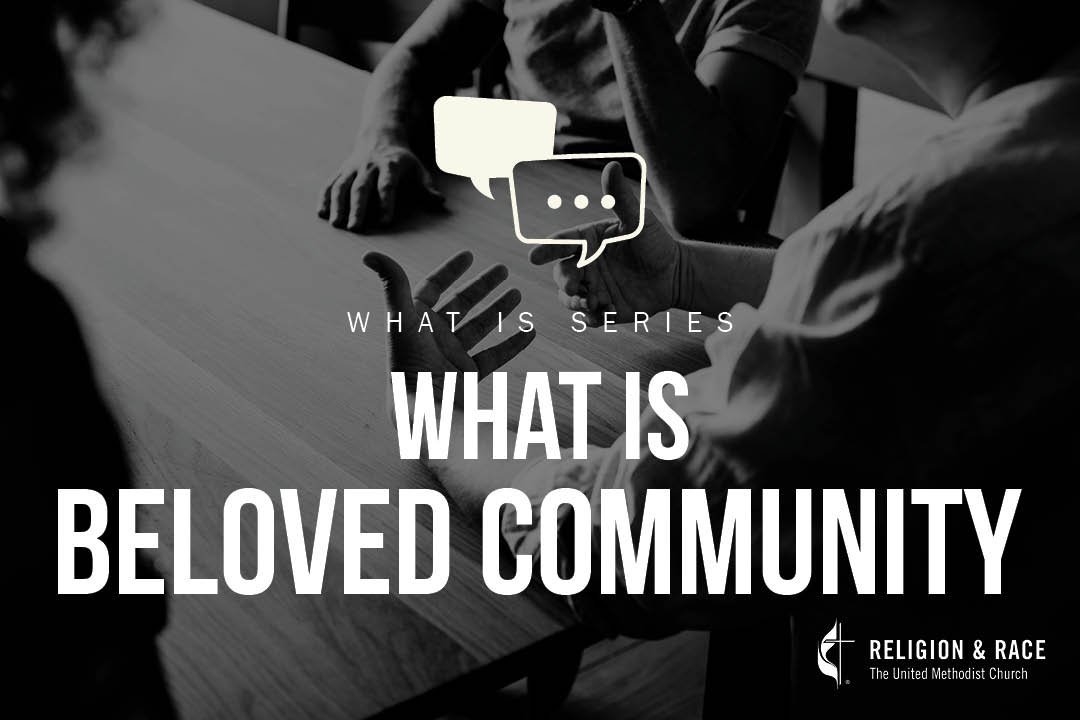What Is Beloved Community?
As humanity’s understanding and discussion of the concepts of race, racism, and antiracism have evolved over generations, so have the words and phrases we use as we continue the work of obeying God and advancing racial justice.
In this “What Is?” series, the General Commission on Religion and Race offers this compilation of concise definitions, examples, and Biblical/theological foundations to create common vocabulary for Christians as we engage in anti-racism work.
Our hope, as you engage this series, is that the learning equips you to move into deeper waters in anti-racism work in your respective context.
Visit the series homepage for more information on other anti-racism resources.
Haga clic aquí para este recurso en español.
Definition:
Philosopher-theologian Josiah Royce first conceived the Beloved Community concept; later, Dr. Martin Luther King Jr popularized it during the Civil Rights Movement. Dr. King envisioned that the Beloved Community to be a global movement where the agape love of God would be the driving force to redemption and reconciliation and a place where all people can share in the abundance of wealth in the world. In the Beloved Community, all forms of discrimination, bigotry, and dehumanization are eradicated and countered by a more inclusive, interdependent existence of people who live in non-violent harmony with one another.
Example(s) of Beloved Community:
Many organizations embody the principles of Beloved Community and try to live into its concept and bring about its reality in our world. From interfaith to grassroots organizations, people work together to counter the oppressive systems that place groups of people on the margins of our society. Some movements work towards manifesting a liberating existence where their work centers on the sanctity of life for all people.
One example is the Baltimore Peace Challenge (formerly, The Baltimore Ceasefire). The Baltimore Peace Challenge is a movement in Baltimore city that challenges the city to cease violence and murder specific weekends throughout the year. During these times, communities and organizations provide events and resources that counter the city's narrative and reality of violence. They create sacred spaces that honor the lives lost throughout the city and challenge the community to embrace and live in the real possibilities of thriving together in peace (https://baltimoreceasefire.com/).
Biblical/Spiritual/Theological Framing or References:
According to Dr. King, the foundation of a beloved community is God's agape love. He explains that agape is the "overflowing love which is purely spontaneous, unmotivated, groundless, and creative…It is the love of God operating in the human heart" (A Testament of Hope: The Essential Writings and Speeches, 19. HarperOne, 1991). King’s challenge to personify agape love looks like living into Jesus' countercultural sermon on the plain in Luke 6:20-38, where he directs us to love our enemies, do good, and show compassion. It is also an invitation to acknowledge the humanity of all people, including those who would cause harm and perpetuate the oppressive evil forces of isms that divide us. Not to excuse this behavior or even accept it but to actively work towards not becoming what we are fighting against.
Reflection Questions:
What does it look like to be the beloved community and reduce the harm it can cause to people facing ongoing oppression and marginalization?
Dr. King was a part of a collective that fought for inclusivity and integration with non-violent tactics; how have we expanded our understanding of Beloved Community and the need for racial and ethnic affinity spaces to prevent burnout?
What does beloved community look like now in the era of our current uprisings and the Black Lives Matter Movement?
How do we embody the beloved community and acknowledge the complicit nature of many of our religious institutions regarding racism, sexism, homophobia, and ableism?

